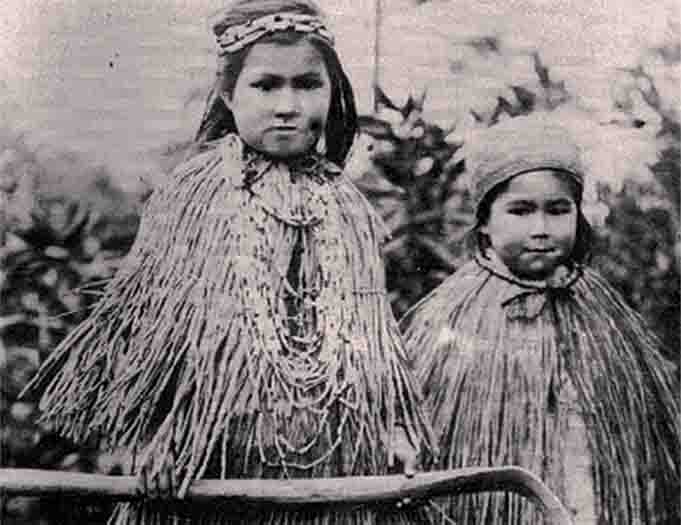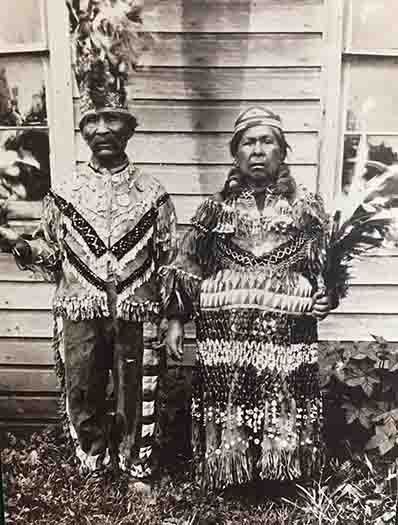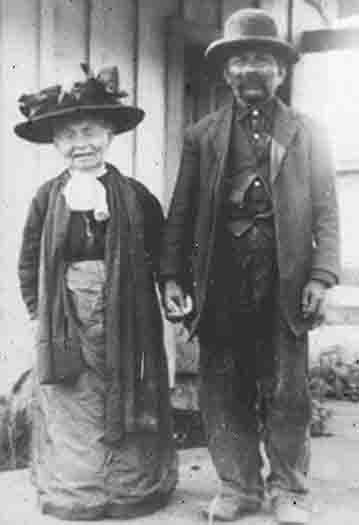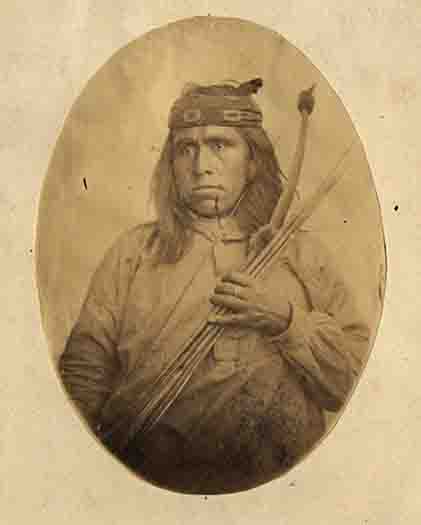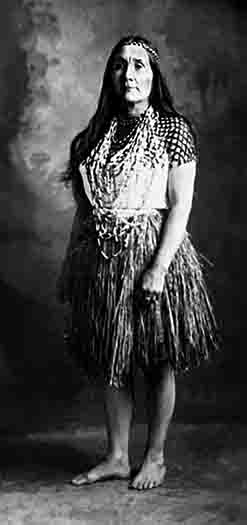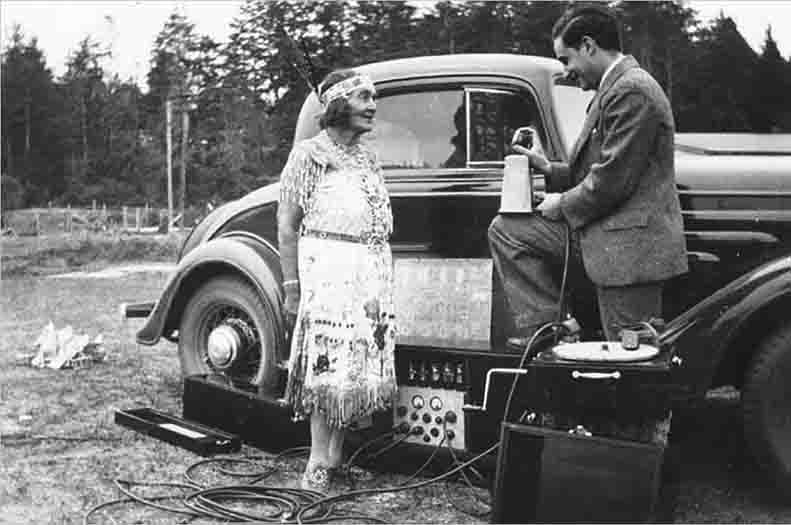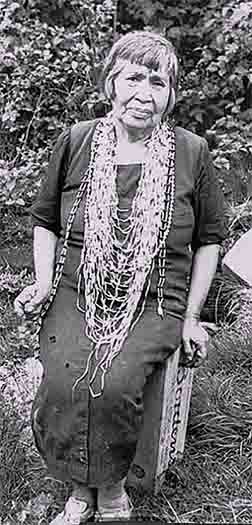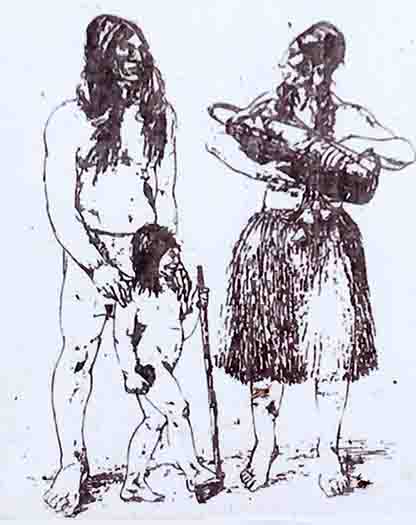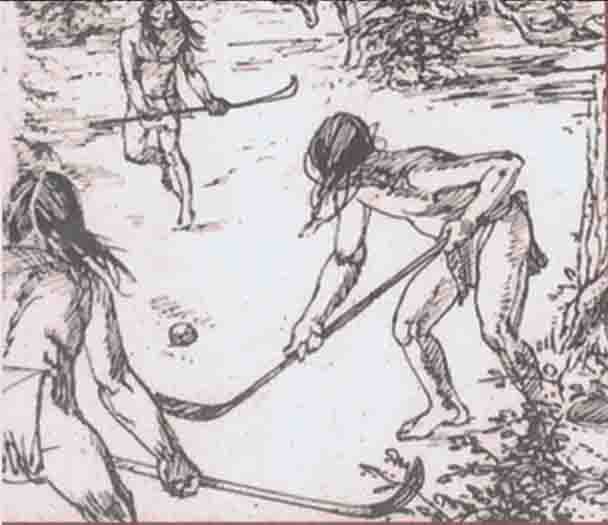Yachats Memorial Park Cemetery & the Alsea Sub-Agency for the Oregon Coast (Siletz) Indian Reservation
1550 Highway 101, Yachats, OR 97498
One of Yachats' Saddest Chapters
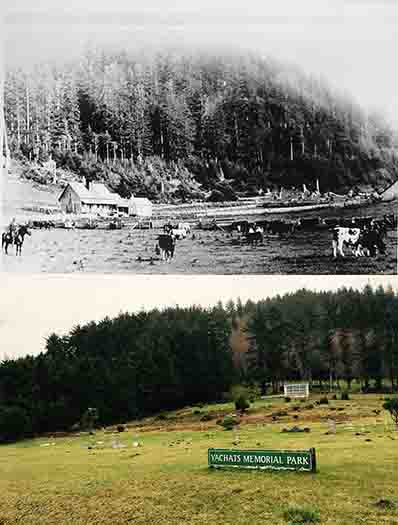
The oldest marker in the Yachats Memorial Park is on the grave of a baby buried in 1884.
In 1851 this was the site of the Indian Coast Range Reservation Alsea Sub-Agency. Sam Case, the first sub-agent, lived in a house made of rough planks. George Litchfield, the second agent, built a two-story home for his family.
Before that, for over 100 generations, the Ya'Xaik (pronounced YAH-khite with the H gargled) summered in what is now known as Yachats, Oregon. They were part of the Alsea Indians.
Central Oregon Coast Indians were hunter-gatherers following the seasons. They ate fish, shellfish, birds, berries, fruits, camas, ferns, roots, nuts, and seeds. Their houses in Yachats were subterranean with cedar-planked roofs.
Some estimate that if they worked a 40-hour week, they only had to work between one and three months a year to collect everything they needed to survive.
By the reservation years, most of the Indians who originally lived here were dead from smallpox, tuberculosis, and other European diseases contracted while trading.
In 1855 an unratified treaty created the Coast Range Reservation, later known as the Siletz Reservation. A little over one million-acres, from Cape Lookout to Tahkenitch Lake, were closed to non-Indian settlement under the guise of protection. It was also assumed there nothing of value was here, and no one else would be interested in such a remote and overgrown region.
All western Oregon Indians--more than 4,000 people from more than 20 tribes--were relocated and compelled to live together with no regard for differing customs, languages, diets, and values.
In 1860 the Coos and Lower Umpqua people were also forced to relocate to the reservation.
At the time the government was trying to "civilize" Indians. "Civilized" people were Christians who tilled the soil, wore cotton or wool clothing, and spoke English. The Indian agency tried to turn them into farmers despite the fact that one of the reasons the reservation site was chosen was its lack of good cultivatable land. Planting close to the ocean led to crop failures and starvation.
Because Congress never ratified the treaty, there was no money to buy the goods and services promised. Under the original agreement, each adult Indian was supposed to receive $75 per year in payment for the land they had relinquished. Every year the death rate exceeded the birth rate on the reservation.
By 1865 reservation was reduced in half, forcing the remaining Alsi Indians south of the Alsea River where food was scarce. In 1872, tribal members returned to their more traditional hunting and gathering practices and successfully farmed several miles up the Yachats River.
In 1875, reservation soldiers and others who occupied the native land realized that the Yachats area was fertile for farming and petitioned the U.S. government to open up the area to white settlement. However, it was against the Indians' wishes and violated federal law. The Yachats' Alsea Sub-Agency was closed, reducing the size of the reservation again. Once more, the natives were forced to move to, this time to Siletz, 30 miles northeast of Newport. From 1872 to 1892, the remaining land was divided into small allotments granted to Indians. Many lost their land because of taxes, other complicated rules, and hostile neighbors. By 1893, the million-plus acres had been reduced to several thousand.
In 1954 Congress passed the Western Oregon Indian Termination Act ending federal support.
Remaining members and descendants came together in the 1970s to fight for the restoration of tribal status, which was granted in 1977 under the umbrella of the Confederated Tribes of the Siletz. Courage and perseverance have resulted in tribal culture and traditions being revitalized.
